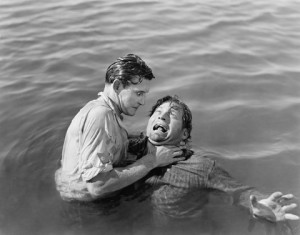Preventing and Stopping Cravings
Not all addicts and alcoholics struggle with cravings in recovery. And not all addicts and alcoholics experience them with the same intensity. But knowing how to recognize the sets ups and triggers for a craving are crucial skills for those in recovery who do experience them. Otherwise, it’s like living through a drug and alcohol-themed version of Groundhog Day.
On his blog, Terence Gorski described a three-stage model to manage cravings without them leading back to active drug or alcohol use. Two previous articles “Ready to Cope with Cravings” and “Getting Set to Cope with Cravings” reviewed the three stages of Gorski’s model to understand cravings. This final article of the three part series describes how to prevent cravings and stop them once they do occur.
Craving is not an inevitable process. They can be prevented if you follow a few simple guidelines. And they can be managed without a return to active drug use. Gorski suggested five preventive measures against craving.
- First, develop and maintain a structured recovery program that keeps you in regular, continuous, daily contact with other recovering people.
- Second, know what your triggers are. “Identify the things that activate the craving and learn how to cope with those triggers.”
- Third, know and avoid your set-up behaviors; learn how to cope with them if you can’t avoid them.
- Fourth, dismantle euphoric recall—intentionally include where the “fun” of the high will eventually lead you. Remember where it took you in the past.
- Fifth, stop awfulizing sobriety and put an end to magical thinking.
Despite your best efforts, you may still experience cravings. Remember that they are a normal symptom experienced by most addicts in recovery. While there are a fortunate few who have minimal or no problems with cravings in early recovery, they are the exception, not the rule. So if you have cravings, stop them from leading you back to active drug use by practicing a few simple steps.
- First, recognize the craving. This may seem obvious, but sometimes the craving is mild and appears to be something you can “white knuckle” it through until it’s over. “Many addicts fail to identify mild craving as problematic and wait until they are full-blown, severe cravings before taking action.”
- Second, don’t panic if you have one. Remember that cravings are normally experienced by addicts in recovery. It doesn’t mean you are doomed to resume active drug use or that you aren’t doing enough for your recovery.
- Third, get away from where you are. A craving might be activated by an environmental trigger. You may have thought a situation wouldn’t be a trigger, only to discover once you are in it, that it triggers you. GET OUT OF THERE and go to “an environment that supports recovery.”
- A fourth step you can take is to talk the craving cycle through with someone. “If you talk it through, you don’t have to act it out.” Honestly talking the process through from beginning to end can discharge the urge to use because you are mentally removing yourself from it. It’s like you have a video of the process that you are reviewing. You stop, rewind, fast-forward, and go frame by frame with the recording of what happened to discover the timeline and cause-and-effect chain reaction of what led to the craving.
- Fifth, distract yourself. Divert attention from the craving by engaging in other productive, positive activities that require your full attention.
- You could do some aerobic exercise, a sixth action step to cope with cravings. Aerobic exercise can stimulate brain chemistry that reduces cravings.
- Seventh, you can try meditation or relaxation. Cravings are often intensified under high stress. “The more a person can relax, the mower the intensity of the craving.”
- Eighth, you can eat a healthy meal to nourish your brain.
- Ninth, remember they are time-limited and will eventually pass. Most cravings won’t last more than two or three hours. If you persist in the steps suggested here to the point of getting fatigued enough to fall asleep, many people wake up with the craving gone.
It is possible to understand drug craving and to learn how to manage craving without returning to use. A model that allows people to identify set-up behaviors, trigger events, and the cycle of craving itself, and intervening upon this process has proven effective in reducing relapse among addicts.
I have read and used Terence Gorski’s material on relapse and recovery for most of my career as an addictions counselor. I’ve read several of his books and booklets; and I’ve completed many of his online training courses. He has a blog, Terry Gorski’s blog, where he graciously shares much of what he has learned, researched and written over the years. You can access additional articles stemming from Terence Gorski’s material under the Gorski link on Faith Seeking Understanding.



